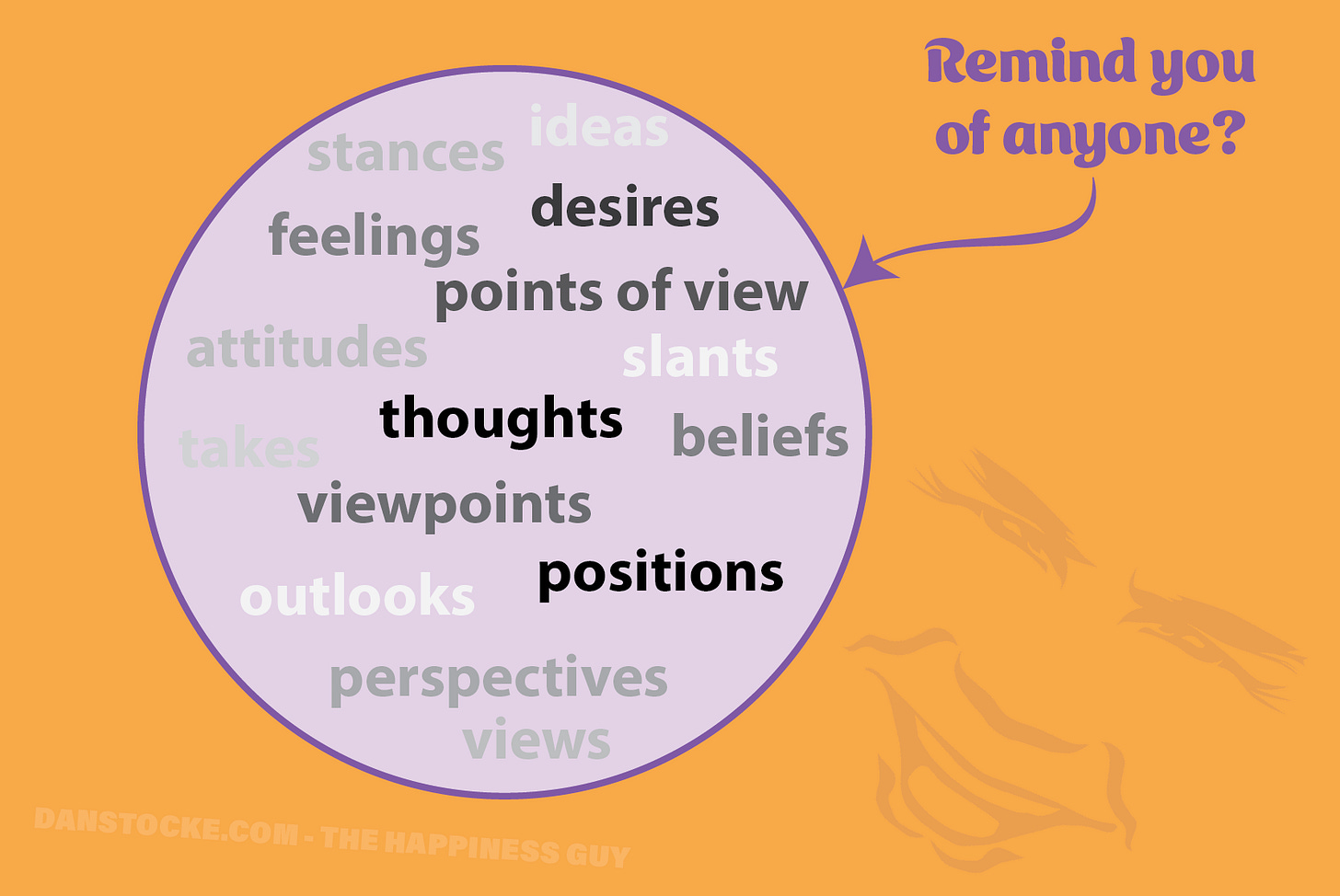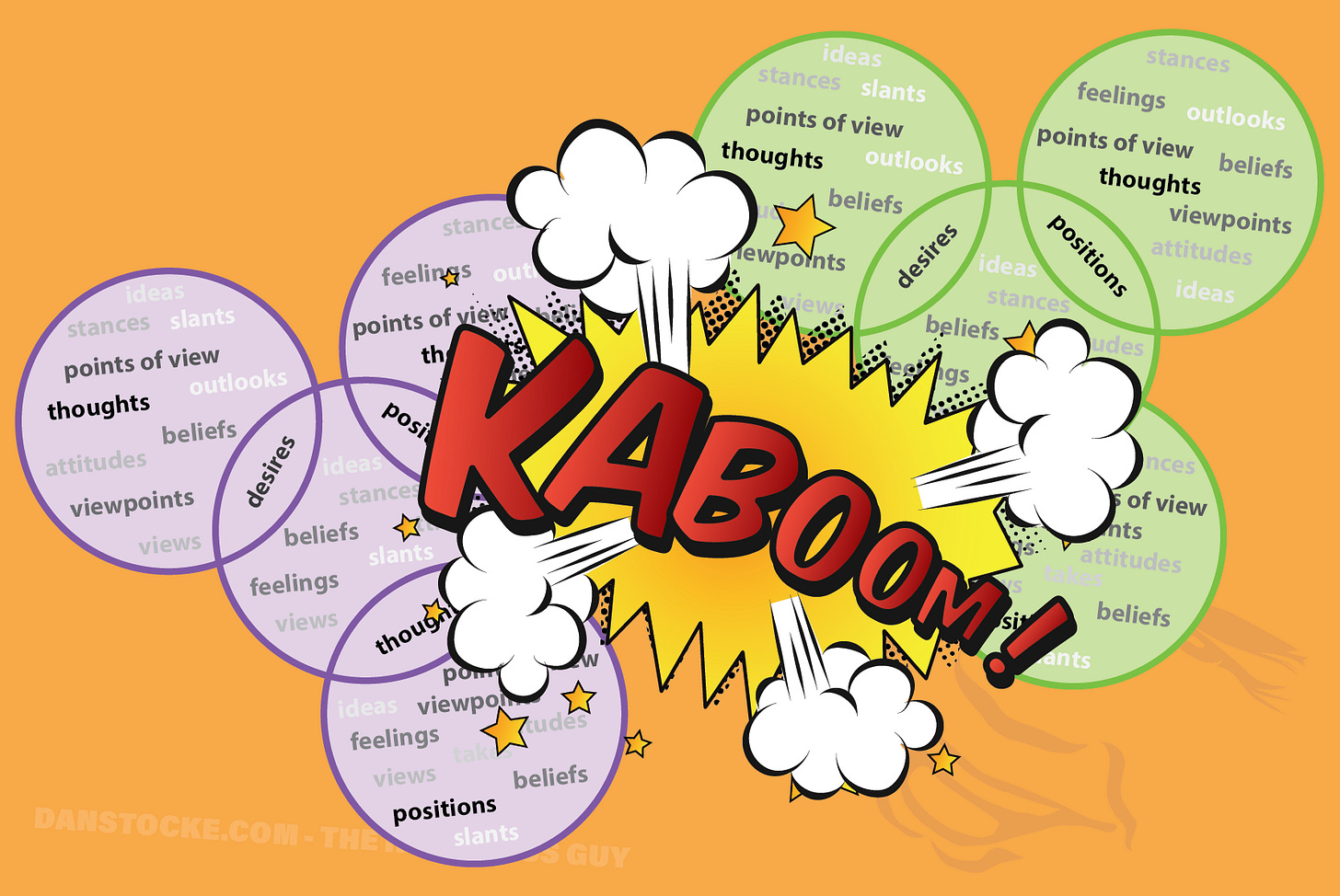THE PURSUIT OF HAPPINESS
The founding fathers thought happiness was so important they put it right up there with "life" and "liberty".
Happiness is so ingrained in the human psyche that Americans collectively put it in the letter to Britain when we said "yo, back off!"
There are those who are “Constitutional Absolutists” who believe whatever is written in the Constitution is unassailable and sacrosanct. But the Founding Fathers put the line “In order to form a more perfect union…” into the doc, which seems to me to indicate they understood that, while perfection might be the goal, it’s not easily achieved. They didn’t say “In order to form a perfect union…” They allowed themselves some leeway (and let themselves off the hook) by saying “more perfect”.
The Constitution lays out the rules for running this “more perfect union”, but what does “more perfect” mean? They offered up some clues to that in the Declaration of Independence.
The founding fathers thought happiness was so important they put it right up there with "life" and "liberty". But they knew that happiness itself could not be endowed by our creator as an unalienable right like “life” and “liberty”. Unalienable means something that is “unable to be taken away from or given away by the possessor”. It is something that is inherent - built into the existence of the thing. Happiness, by itself, doesn’t fit that bill.
- life: the right to simply exist (check)
- liberty: the right to live as your own person (check)
- happiness: the right to be in a state of contentedness (um... Not really)
So they added "pursuit" into the mix. I think this is where they did us a huge disservice. They made it sound like happiness is something to be tracked and trapped like a rabbit. While that concept imbued us Americans with a certain amount of drive, it didn't allow happiness to exist as an emotion or as a "state of being". Happiness, being the ephemeral thing that it is, once caught, fades and must be pursued again. To that end it can't ever be truly caught, so the pursuit of it is somewhat moot.
They should have used a different word: Desire? Need? Hankering?
We hold these truths to be self-evident, that all men are created equal, that they are endowed by their Creator with certain unalienable Rights, that among these are Life, Liberty and a hankering for Happiness.
Regardless of the pursuit or hankering of it, happiness was included in the list of unalienable rights because happiness and freedom are intertwined. They do not and cannot live independently. Let me explain:
HAPPINESS = FREEDOM
We all have our opinions - the thoughts and desires that drive us, that make us who we are. It looks like this:
We tend to gather with people who have the same thoughts and desires. That’s natural. We are a communal species and we like to keep things simple. It looks like this:
We also tend to NOT gather with people who do NOT have the same thoughts and desires. Those people gather amongst themselves:
Typically this is where tribalism rears its ugly head. These two groups believe the other is “wrong” insomuch that they have differing viewpoints and so might go to war to force their view on the other. It’s… not good.
Enter Freedom *trumpets blare* - where an individual’s life, liberty, and hankering for happiness are held as unalienable - and we find ourselves with an overarching Venn Circle that allows everyone to have, at least, one thing in common: Freedom.
Freedom joins us all.
Freedom empowers us to allow the other group to have their thoughts and desires without repercussion, as long as they afford us the same grace. Freedom demands that we allow people, whose choices may be different from our own, to pursue their own happiness (ah, damn, maybe the founding fathers were right!).
Freedom insists that we be happy for other people’s happiness (sound familiar). One could even argue that the very definition of freedom is the happiness in the happiness of others.
Freedom: The happiness in the happiness of others.
Thus when we find happiness in the happiness of others, only then are we truly free (cue the trumpets).









